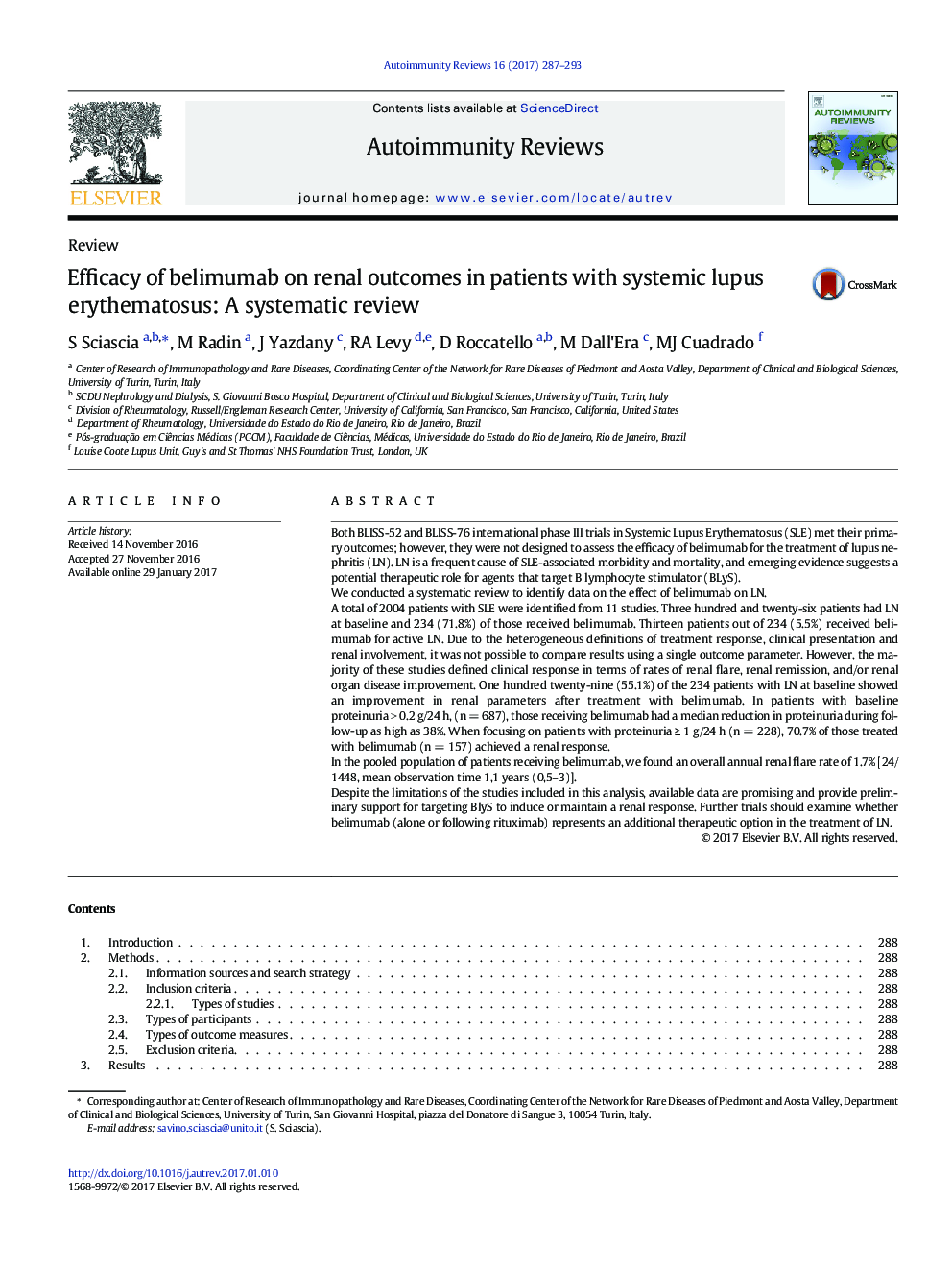| Article ID | Journal | Published Year | Pages | File Type |
|---|---|---|---|---|
| 5665332 | Autoimmunity Reviews | 2017 | 7 Pages |
Both BLISS-52 and BLISS-76 international phase III trials in Systemic Lupus Erythematosus (SLE) met their primary outcomes; however, they were not designed to assess the efficacy of belimumab for the treatment of lupus nephritis (LN). LN is a frequent cause of SLE-associated morbidity and mortality, and emerging evidence suggests a potential therapeutic role for agents that target B lymphocyte stimulator (BLyS).We conducted a systematic review to identify data on the effect of belimumab on LN.A total of 2004 patients with SLE were identified from 11 studies. Three hundred and twenty-six patients had LN at baseline and 234 (71.8%) of those received belimumab. Thirteen patients out of 234 (5.5%) received belimumab for active LN. Due to the heterogeneous definitions of treatment response, clinical presentation and renal involvement, it was not possible to compare results using a single outcome parameter. However, the majority of these studies defined clinical response in terms of rates of renal flare, renal remission, and/or renal organ disease improvement. One hundred twenty-nine (55.1%) of the 234 patients with LN at baseline showed an improvement in renal parameters after treatment with belimumab. In patients with baseline proteinuria > 0.2 g/24 h, (n = 687), those receiving belimumab had a median reduction in proteinuria during follow-up as high as 38%. When focusing on patients with proteinuria â¥Â 1 g/24 h (n = 228), 70.7% of those treated with belimumab (n = 157) achieved a renal response.In the pooled population of patients receiving belimumab, we found an overall annual renal flare rate of 1.7% [24/1448, mean observation time 1,1 years (0,5-3)].Despite the limitations of the studies included in this analysis, available data are promising and provide preliminary support for targeting BlyS to induce or maintain a renal response. Further trials should examine whether belimumab (alone or following rituximab) represents an additional therapeutic option in the treatment of LN.
